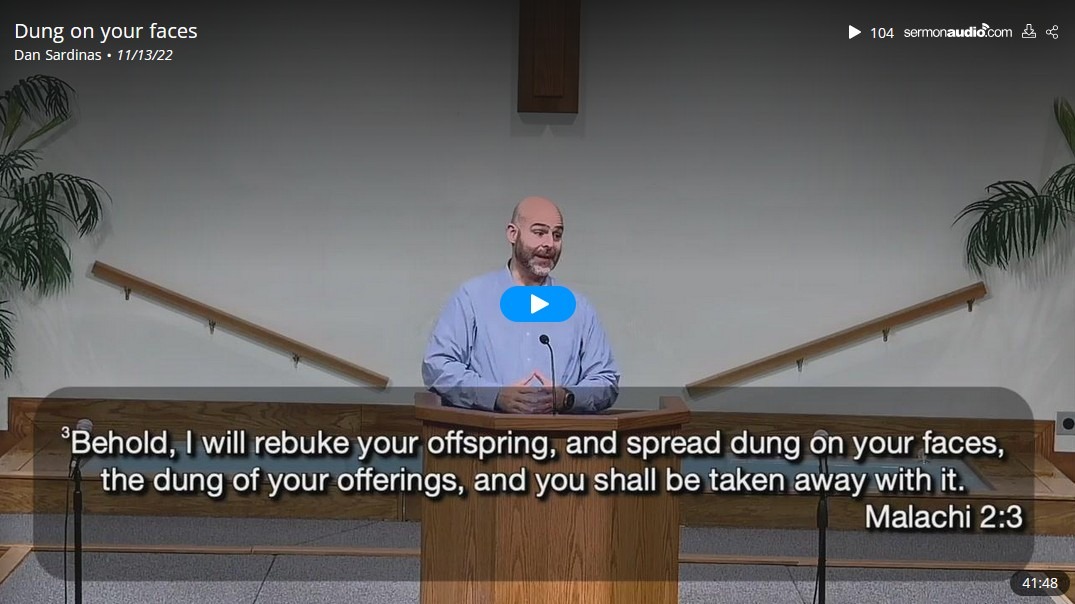Auto-generated transcript:
Open up your Bibles this morning to Malachi chapter 2. Malachi is the last book of the Old Testament, right before Matthew. Let’s ask God’s help once again as we dig into this very heavy passage.
Father, thank you so much for your Word and your people who have gathered once again to hear and abide by it. Lord, may we see Jesus in a bright and powerful way this morning, perhaps in a manner we’ve never considered from this passage. Thank you, Lord, for your work in our hearts and our church. Continue your work according to your will. In Jesus’ name, amen.
We’ve been studying Malachi for a few weeks. If you’re just joining us, here’s a brief synopsis for context. Israel at this time is a complacent nation. They’ve returned to their land 100 years after captivity in Babylon, but their expectations haven’t been met. They anticipated covenant blessings and the arrival of the Messiah, but prolonged waiting caused their hearts to grow cold and apathetic. They accused God of not loving them, harboring a “what have you done for me lately” attitude, engaging in passionless worship and merely going through religious motions without genuine reverence or respect for God.
In chapter 1, God confronts Israel—particularly the priests—who allowed unacceptable sacrifices: blind, lame, and diseased animals, essentially bringing God their leftovers. This dishonored His name. Despite Israel’s failure, God’s mission to glorify His name among the nations will not fail. We, as Gentiles today, are evidence of this promise fulfilled.
Now, chapter 2 addresses the priests specifically. God says:
“And now, O priests, this command is for you. If you will not listen, if you will not take it to heart to give honor to my name, then I will send the curse upon you and curse your blessings. Indeed, I have already cursed them because you do not lay it to heart.” (Malachi 2:1-2)
God highlights the difference between hearing and listening. True listening involves obedience. The priests failed to give God’s commands genuine consideration, disregarding the importance of honoring His name. As a result, God promises to curse them, referencing the covenantal blessings and curses detailed in Deuteronomy 28. The priests’ apathetic state was itself a judgment from God.
Additionally, God declares He will rebuke their offspring and spread dung from their offerings on their faces, signifying His disgust with their irreverent worship. The priests were responsible for teaching and upholding the reverence for God’s name, yet they failed drastically, leading Israel astray. Leadership profoundly impacts people’s spiritual condition, and the priests’ negligence corrupted the entire nation.
Today, similar negligence exists when pastors and churches abandon faithful preaching, substituting entertainment and cultural appeasement. This failure results in shallow spiritual lives among congregations.
God’s severe judgment on the priests symbolizes how seriously He regards true worship. Yet, within this sobering passage, we clearly see the gospel. While the priests were cursed for their disobedience, Jesus, our Great High Priest, was cursed not for His sin but for ours. He bore our sins, symbolized by dung, and was cast out of the city, rejected and cursed, fulfilling the law and covenant perfectly on our behalf. Through Christ, we receive blessings instead of curses, adoption instead of rejection, and eternal acceptance instead of shame.
Let us repent of apathy and turn to Christ, understanding the gravity and glory of His sacrifice. May you trust Him today, embracing the true worship and abundant grace He offers.
Father, work powerfully through your Word today. Lead us to repentance, deeper trust, and genuine worship of Jesus, our perfect High Priest and Savior. In Jesus’ name, amen.

